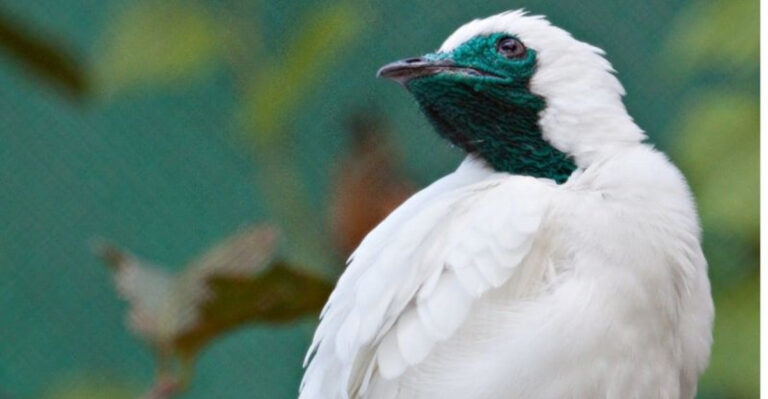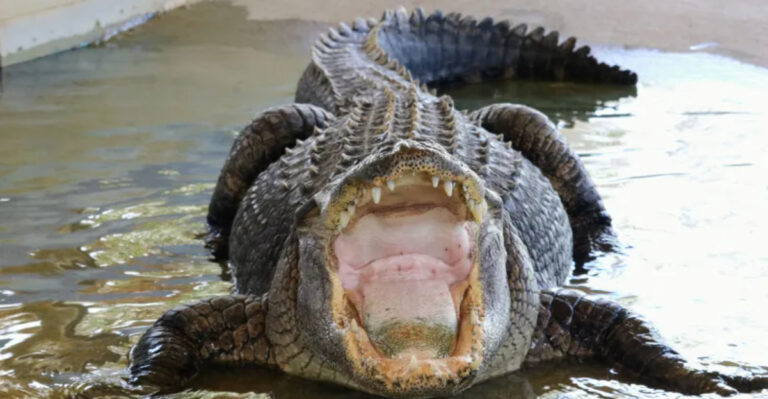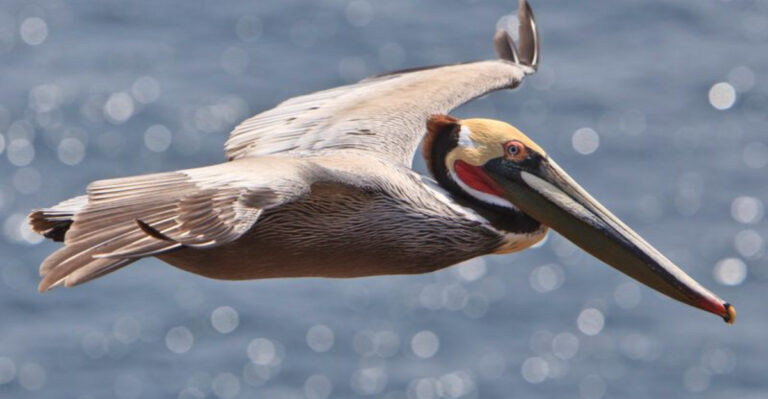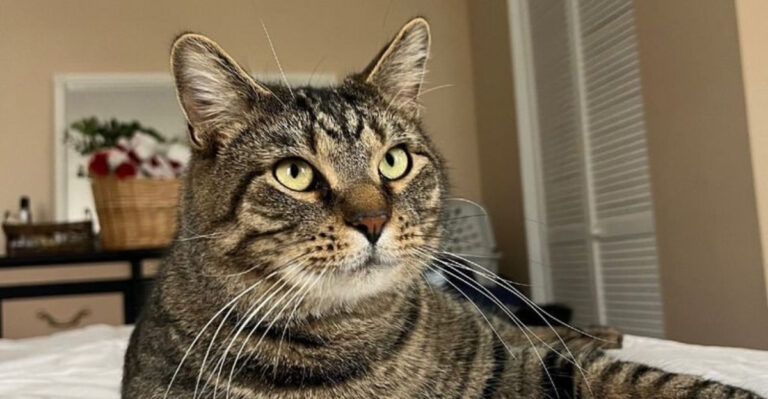14 Warning Signs You’re Overfeeding Your Backyard Birds
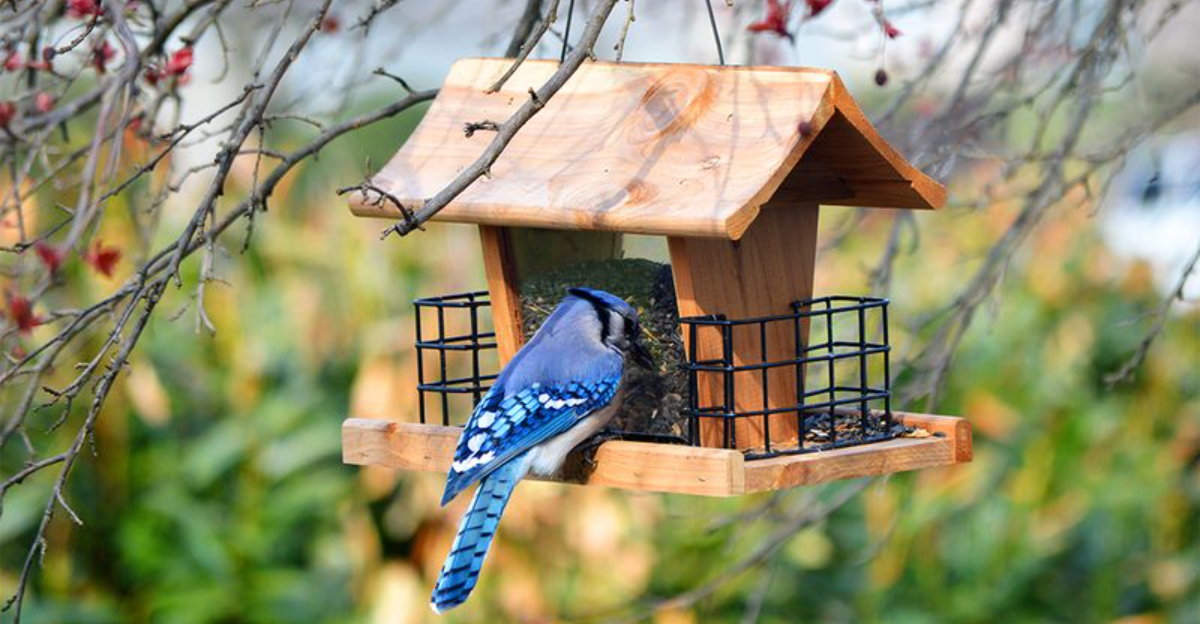
Feeding birds in your backyard is a delightful hobby, but it’s easy to overdo it. Just like us, birds can face issues if they’re showered with too much food.
Let’s explore the subtle hints your feathered friends might be dropping to show you’re going overboard. From uneaten food to increased pests, each sign tells a unique tale about maintaining the balance.
1. Birds Are Leaving Food Behind
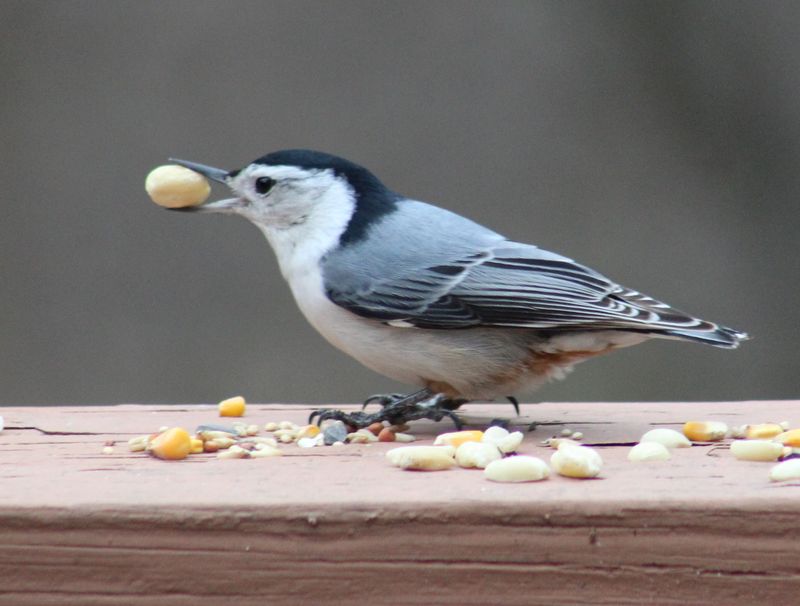
When birds start leaving food behind, it’s a clear sign they’ve had enough. They’re not being picky; they’re simply full. Keeping an eye out for leftover food can save you from offering too much.
Consider mixing up the menu or reducing the portions. If birds aren’t gobbling up the offerings, it might be time to reassess your feeding strategy. Keeping things fresh ensures happier, healthier birds.
2. Food Piles Up Around The Feeder
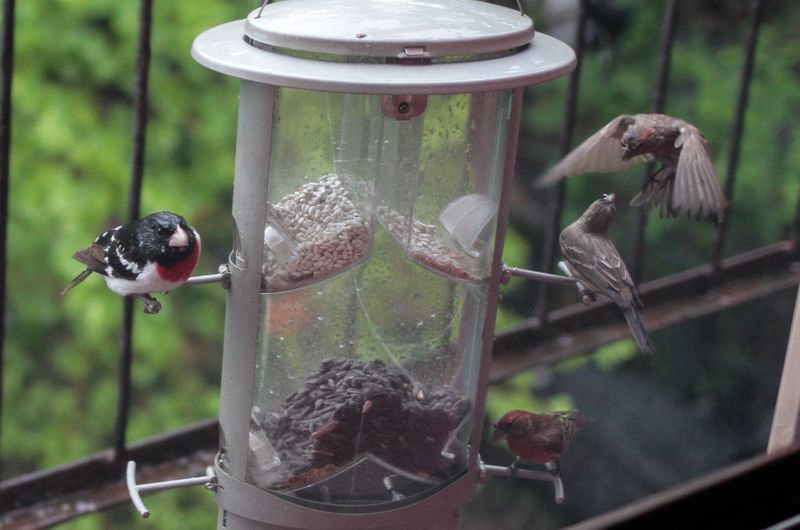
Finding piles of food around your feeder? A surefire sign you’re overfeeding. Birds are selective eaters and will toss aside what they don’t fancy.
This excess can lead to waste and cleanliness issues. It’s smart to clean up regularly and adjust your feeding amounts. Not only does this keep the area tidy, but it ensures birds only eat the freshest, safest food.
3. More Pests In The Area
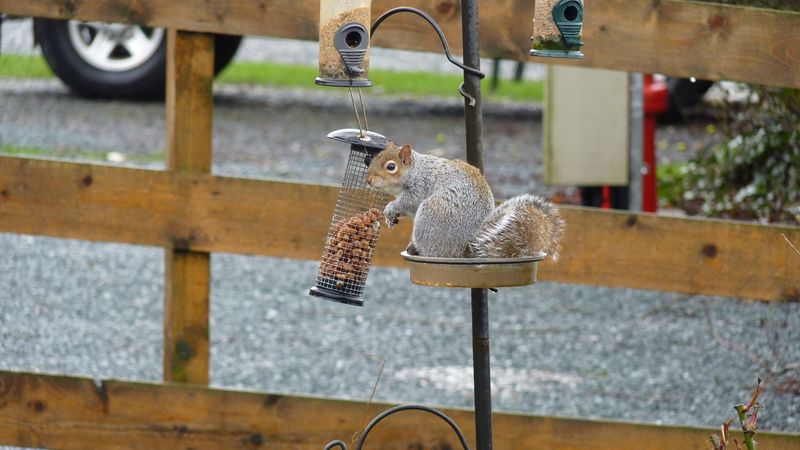
Notice more unwanted visitors like squirrels or rodents? Overfeeding can attract these pests, drawn by the abundant leftovers. They can become a bigger problem than just stealing birdseed.
To keep these critters at bay, regularly clear uneaten food and use baffles to deter them. Balancing your feeding habits will help maintain harmony in your backyard ecosystem.
4. Feeding Time Takes Longer Than Usual
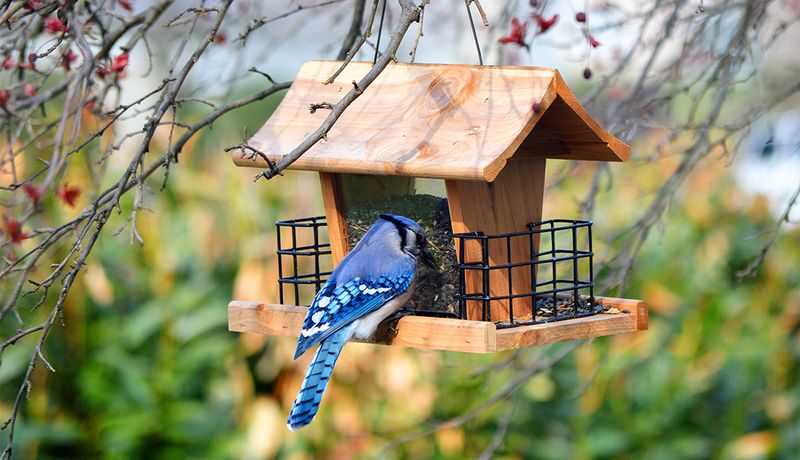
Feeding sessions dragging on? Too much food might be the reason. Birds often linger longer when there’s more than they need.
This can disrupt their natural rhythms, making them feeder-dependent. Monitor their feeding times to keep everything optimal. Shorter, controlled feedings prevent dependency and promote their foraging instincts.
5. Increased Fighting Or Aggression
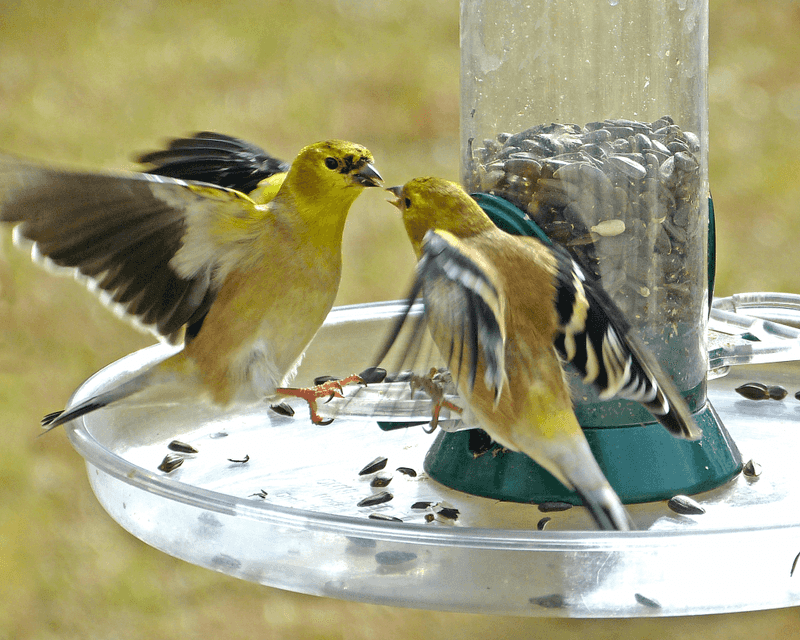
Extra food can stir up competition. Birds may become territorial, fighting over the feast. An abundance of food can intensify aggressive behaviors.
By managing the supply, you can keep the peace. Less food means less conflict, as birds will spread out more to find natural food sources, reducing territorial disputes.
6. Decrease In The Variety Of Species Visiting
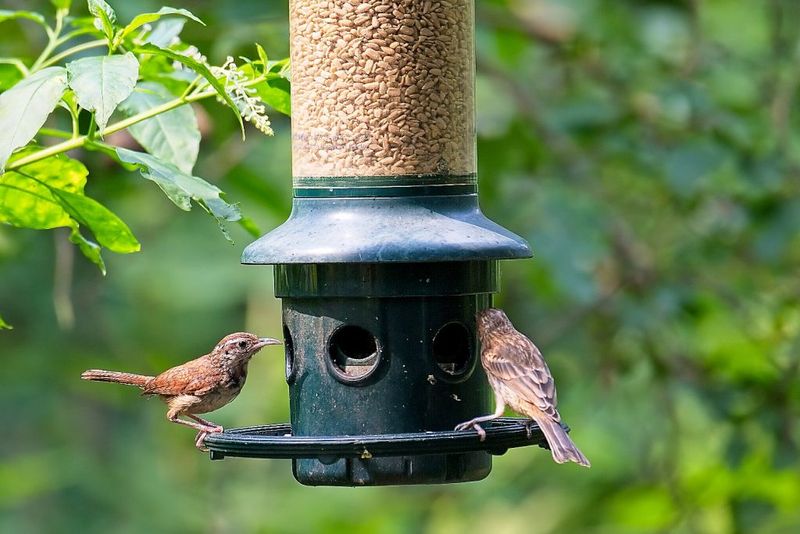
Too much food can scare off diversity. Other species might avoid crowded feeders, where dominant birds reign.
Encouraging a balance allows different birds to feel welcome. Altering feeding habits and locations can invite a broader range of species, ensuring your backyard remains a vibrant bird haven.
7. Birds Are Eating Only One Type Of Food
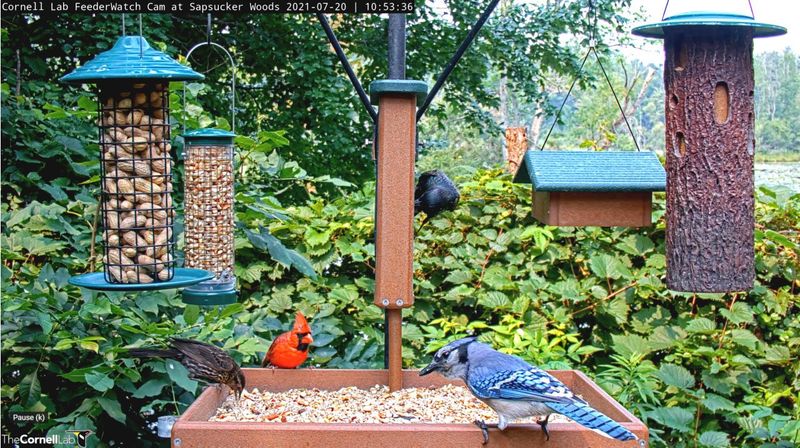
If birds are suddenly fixated on one type of food, they might be overfed. This habit can limit their nutrient intake, affecting their health.
Offering a variety keeps their diet balanced. Consider rotating food types to encourage healthier eating habits, ensuring they receive all necessary nutrients.
8. Feeding Station Becomes Too Crowded
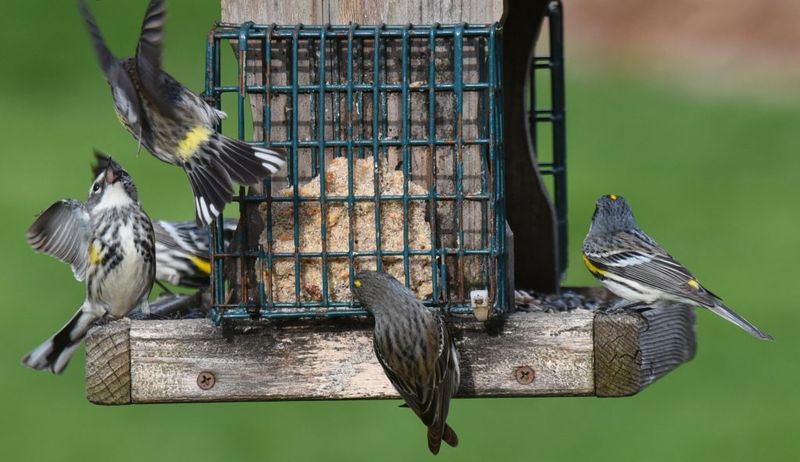
An overcrowded feeder can spell trouble. It indicates excess food and can lead to stress among birds.
Too many birds vying for space can create tension and potential health issues. Limiting food helps manage the crowd and create a more relaxed feeding environment.
9. Food Spoiling Or Growing Mold
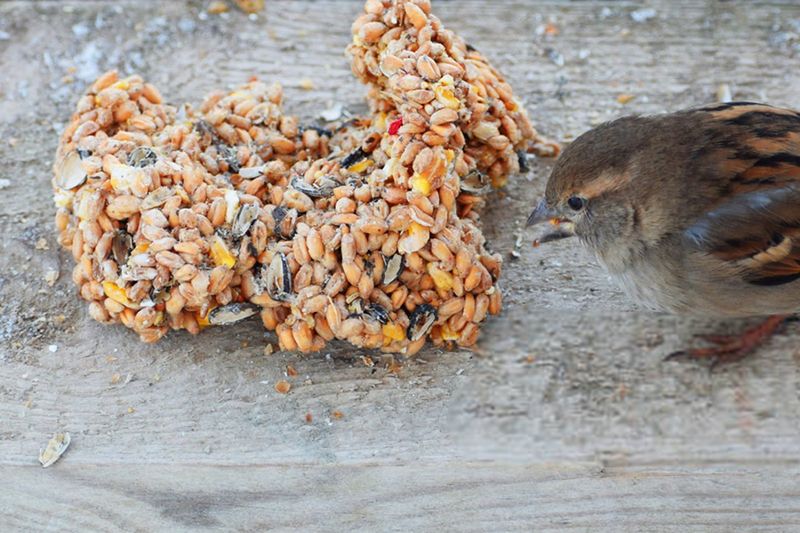
Spoiled food is a health hazard. Overfeeding can lead to food molding, especially in damp conditions. Moldy food poses serious risks to bird health.
Regularly check and clean feeders. Keeping portions manageable prevents spoilage, ensuring only fresh food is available for your feathered guests.
10. Less Natural Foraging Behavior
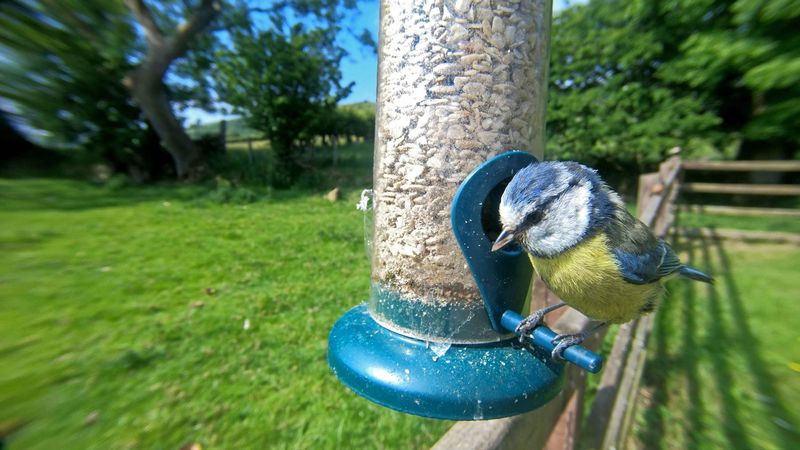
Birds relying too much on feeders forget their foraging skills. Over-reliance can dull their natural instincts and survival skills.
Encouraging natural behavior by limiting feeder access helps maintain their wild savvy. Balance is key to supporting their innate abilities.
11. Food Is Being Scattered Or Wasted
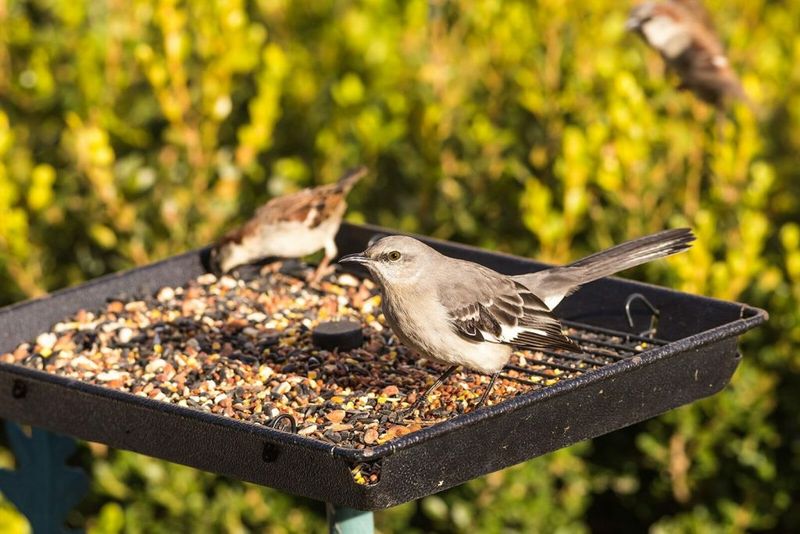
Scattered food isn’t just messy; it’s a sign of excess. Birds may fling food around if there’s too much available.
This behavior leads to waste and can attract pests. By scaling back, you maintain a cleaner feeder area and ensure birds eat only what they need.
12. Weight Gain
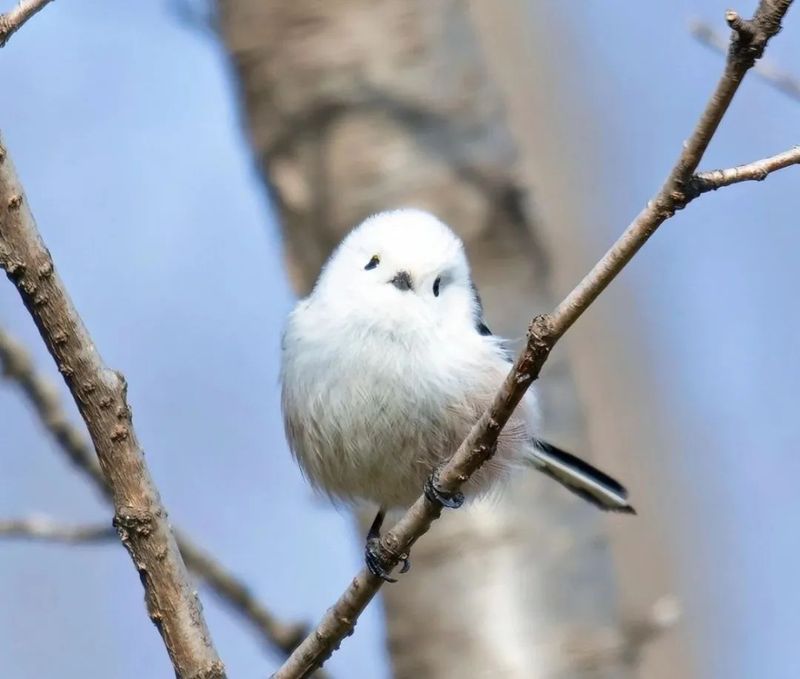
Weight gain in birds can be a sign of overfeeding or poor diet.
When birds gain excess weight, it can lead to serious health issues such as joint stress, heart problems, and even reduced lifespan. Regular monitoring of their diet and exercise is essential to keep them healthy and active.
13. Birds Are Acting Less Active
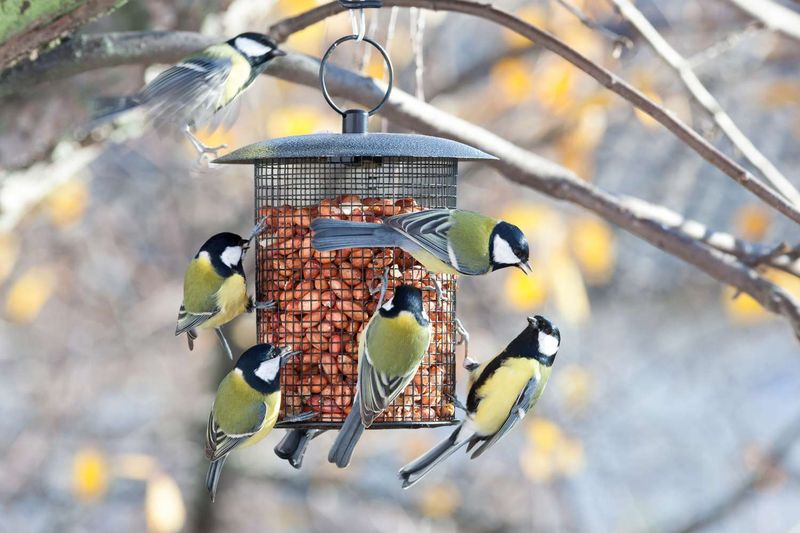
If your birds seem more lethargic or less energetic than usual, it could be a sign that they’re being overfed. Overeating can make birds sluggish and less inclined to engage in their natural behaviors.
It’s important to ensure they’re not consuming excessive food, as inactivity can also lead to health issues.
14. Decreased Bird Health
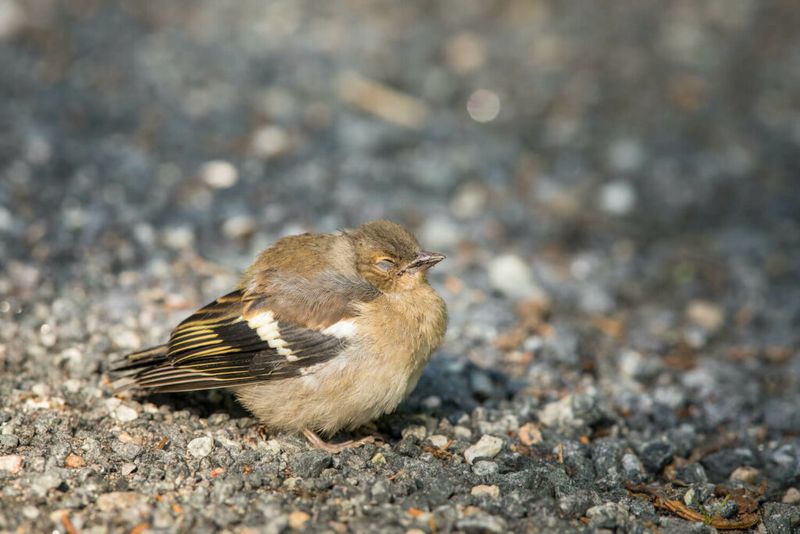
Overfeeding birds, particularly with unhealthy foods, can compromise their health over time. Excessive calorie intake can lead to obesity, malnutrition, or organ failure.
Keeping a balanced diet, with appropriate portions and nutrition, is key to maintaining their long-term health and vitality.



